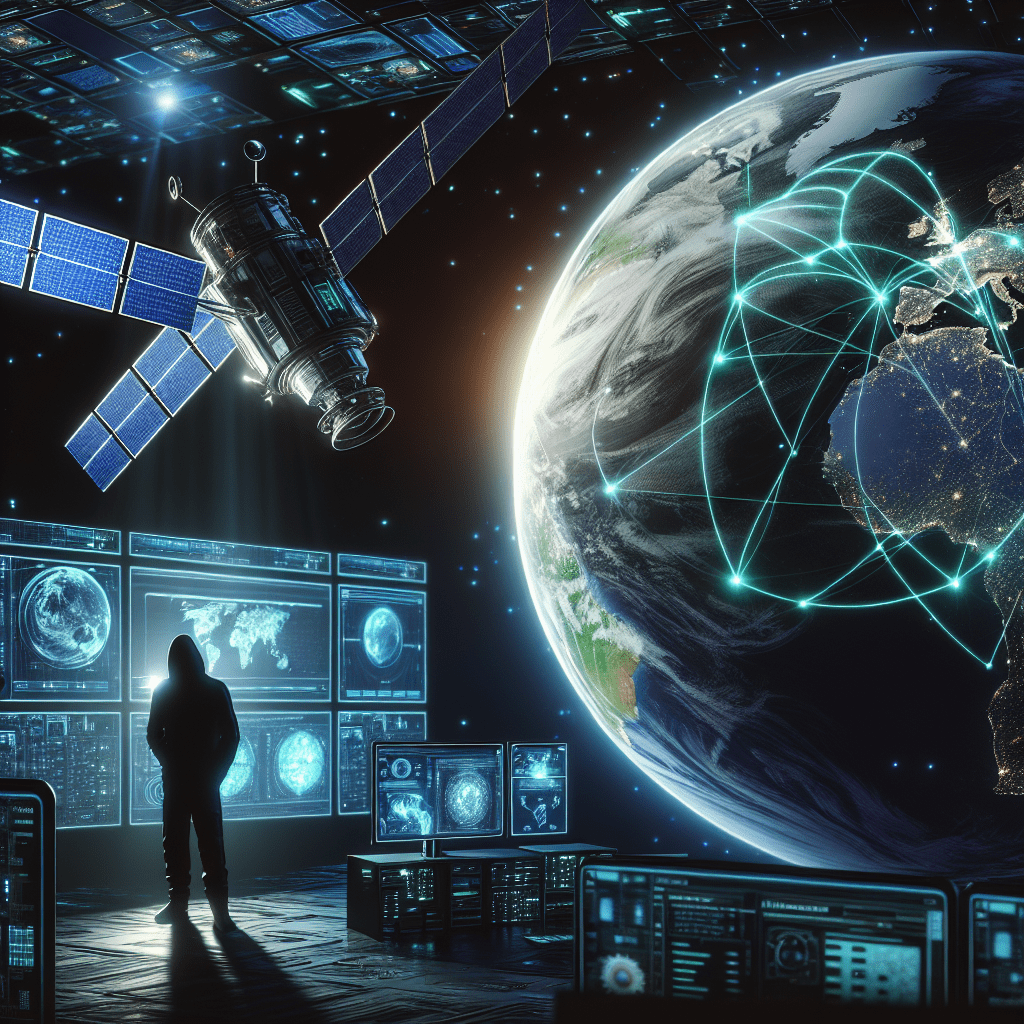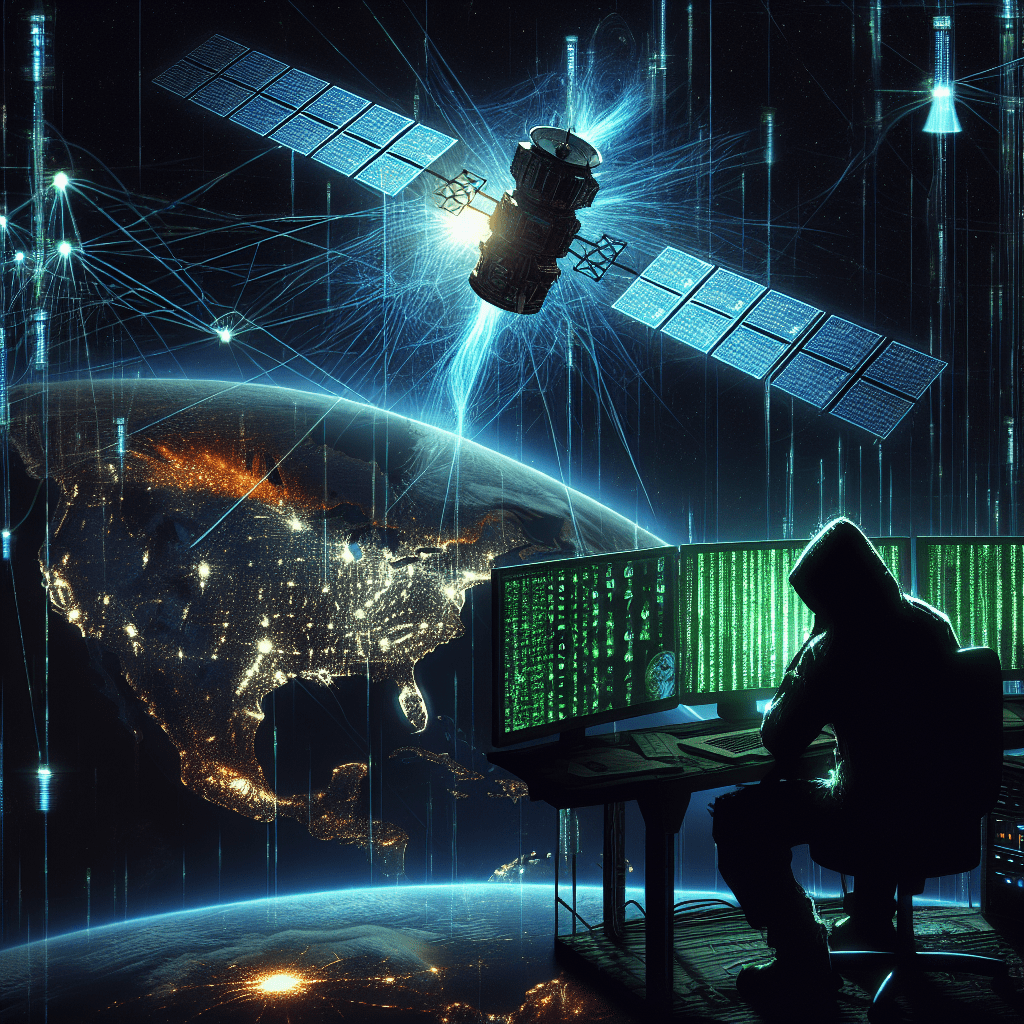Have you ever used GPS to find your way, checked the weather on your phone, or joined a video call with someone far away?
All these everyday activities rely on satellites. These silent machines orbit high above Earth, quietly powering much of modern life.
But as we protect online businesses from cyber threats, there’s a growing concern that hackers could one day disrupt or hijack these space systems. This is why Satellite Cybersecurity is no longer a niche topic, it’s something everyone needs to understand.
What is satellite cybersecurity?
Satellite cybersecurity is the practice of protecting satellites, the signals they use, and the ground stations that control them from hackers. Unlike laptops or phones, satellites are complex, often outdated, and physically unreachable, making them harder to fix if something goes wrong.

Why Satellite Cybersecurity Matters for Everyone
Satellites are not only for science or the military. They impact our daily lives more than many people know. Your smartphone needs satellites for GPS. Airplanes utilize them to navigate through the skies. Emergency services depend on satellite communication when there is no cell signal. Even banks use satellites to keep time in sync for transactions.
If a hacker compromises a satellite, the consequences would be grave. Aircraft may lose their navigation. Emergency calls may be unable to go through. GPS directions may confuse us.
Worst of all, the Navy’s satellites can be compromised, compromising national security. That’s why shielding satellites is more than simply high-tech, it is preserving the wheels of existence turning.
Common Satellite Cybersecurity Risks and Exploits
One is tempted to believe that the satellites are out of harm’s way. They are actually exposed to numerous perils:
- Old Systems Still in Orbit
Many satellites were in space for years, even decades. Their software was not made to handle modern cyber threats. Once they are in space, it is nearly impossible to restore old software programs. Common Satellite Cybersecurity Risks and Exploits
- Poor Communication Cues
Ground stations and satellites use radio waves when they communicate. If the signal is unsecured, hackers may intercept the signal or transmit spurious commands.
- Ground stations are vulnerable as well
Ground command centers on Earth issue instructions and receive information. They may be linked to the web. The hacker needs only to gain access to one ground station in order to potentially seize command over the satellite.
- Parts from Anywhere
Components of the satellite are produced globally. If just one component is broken, the system is weakened.
Real-life examples that exemplify the hazard
This is not just theory. There have been actual incidents demonstrating that the satellites can be attacked.
- In 2007, the U.S. Undercover agent satellite tv for a pc machine became suspected of being hacked.
- A lot of times, Fake GPS signals have repeatedly tricked ships and planes. Instead of showing where they really are, hackers pretending to be satellites misled them.
- In 2019, technicians identified that many satellite communications networks, both commercial and in the defense services, had critical failures.
These examples show us one thing clearly: Satellite Cybersecurity should be important.

Common Ways Satellites Are Attacked
- Jamming
Jamming is when you disrupt satellite communications by transmitting large amounts of interference. IT does not take over the satellite but prevents the satellite from communicating effectively.
- Parody
It is possible to spoof a satellite into thinking that a fake signal is real. GPS spoofing, for example, tricks a receiver into showing the wrong place.
- Malware
Hackers can also send harmful software that gets into satellite systems. Once inside, they may take control or steal important information.
- Denial-of-Service (DoS)
The assault makes the satellite or its ground station receive numerous irrelevant requests until they no longer function.
How Do We Make Satellites Safer?
The satellites don’t have any defense. Our duty here on Earth is to protect the satellites.
- Use strong encryption.
Ground-station communications through the satellite tv for pc have to be encrypted. As a result, if hackers intercept the signal, they will no longer be able to observe it.
- Add software updates
Designing satellites that are software-upgradeable fixes security vulnerabilities after the launch of the satellites into orbit.
- Baseline Security Requirements
Ground stations require systems that will watch out for any suspicious operations and inform the team if something seems amiss.
- Careful Supply Chain Management
All parts used in satellites should come from reliable sources. Uncaring suppliers can create hidden security problems.
- Multi-Layer Authentication
Only allowing individuals with multiple means of verifying who they are to have control over satellites makes it harder even for hackers.
- International Cooperation
States should cooperate. Exchanging information related to threats can motivate everyone to increase their satellite protection.

What’s the Future of Satellite Cybersecurity?
Technology is only getting better. New compact spacecraft known as CubeSats are inexpensive and simple to launch, but they frequently lack sufficient protection. They become hacker targets. Perhaps artificial intelligence (AI) will be involved. Hackers may use AI to find weaknesses more quickly, but defenders can use AI to see threats early and act fast. Global norms and security standards for the cybersecurity of satellites are beginning to take shape, but much remains to be done. Space companies, governments, and experts must cooperate if space is to remain safe.
Conclusion: Is Space Safe?
The concept that hackers can take out satellites is out of a movie script, but it is indeed a risk. Satellites are crucial in terms of communication, navigation, emergency services, and the military. The damage that can be caused by a hacker is big; it could have an effect on all people. Luckily, there are many methods to guard satellites. Encrypting information tightly, using safeguarded floor stations, upgrading software often, and participating globally decrease perils. However, the war against cyber attacks in space is far from over. Both the technology and the tricks hackers use will continue to change. Learning satellite cybersecurity is everyone’s responsibility because everyone’s lives are touched by this issue. The more we learn, the better we can all contribute to keeping our world’s satellites—and world—at peace.
